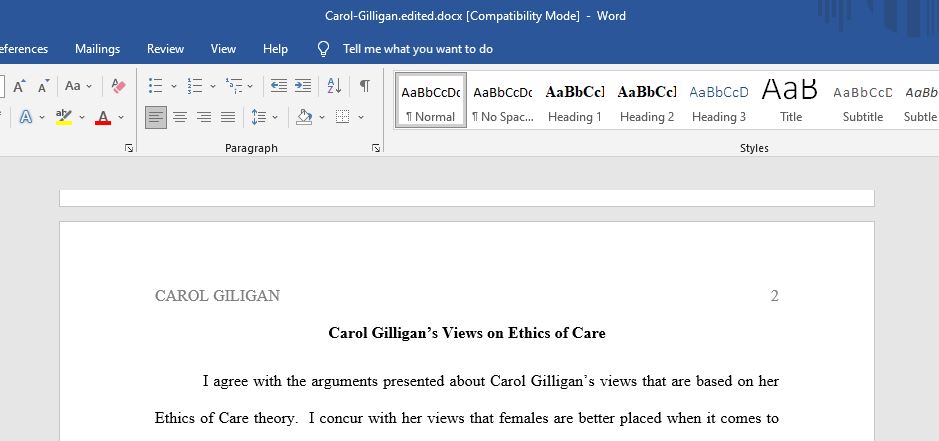Carol Gilligan’s Views on Ethics of Care
Carol Gilligan is an American feminist, ethicist, and psychologist best known for her work with and against Lawrence Kohlberg on ethical community and ethical relationships. Carol Gilligan argued that males and females are often socialized differently, and females are more suitable than males to stress interpersonal relationships and take responsibility for the well-being of others. She suggested this difference is due to the child’s relationship with the mother and that females are habitually taught a moral perception that concentrates on community and caring about personal relationships.
I agree with Carol Gilligan her complaint challenged the views by affirming that women weren’t less moral, but instead had a different kind of ethics. She often argued that the results of Sigmund Freud’s and Lawrence Kohlberg research were skewed, leaving out the factors that proved to be most important to girls and women.
Gilligan proposed the Stages of the Ethics of Care theory, which addresses what makes actions right or wrong the theory focused on both care based morality and justice-based morality. The Carol Gilligan theory states that women develop a sense of morality that’s based on relationships and feelings of care and responsibility for others. Further, Gilligan’s theory states that women develop a different sense of morals as their sense of themselves develops. When women transition into the post-conventional stage, they no longer judge this way. Instead, they see themselves collectively. As women, their ethic of care is based on what helps the world overall and in the long term.
At least one reference
Answer preview:

